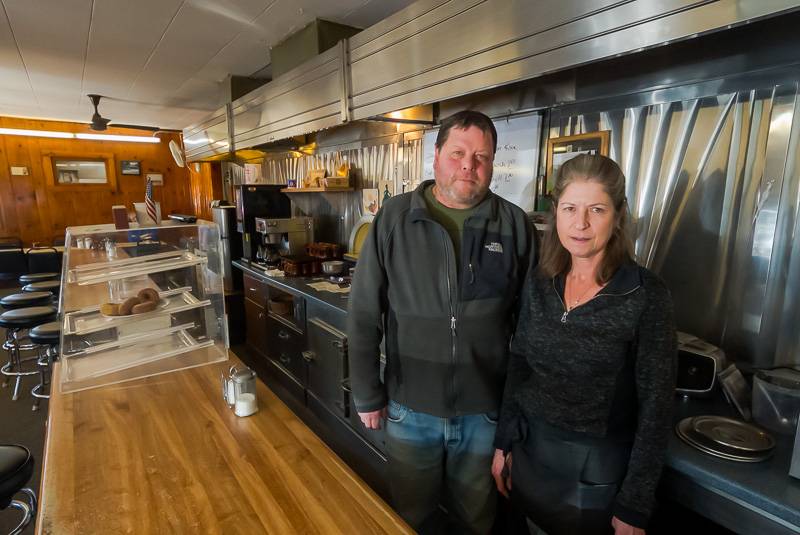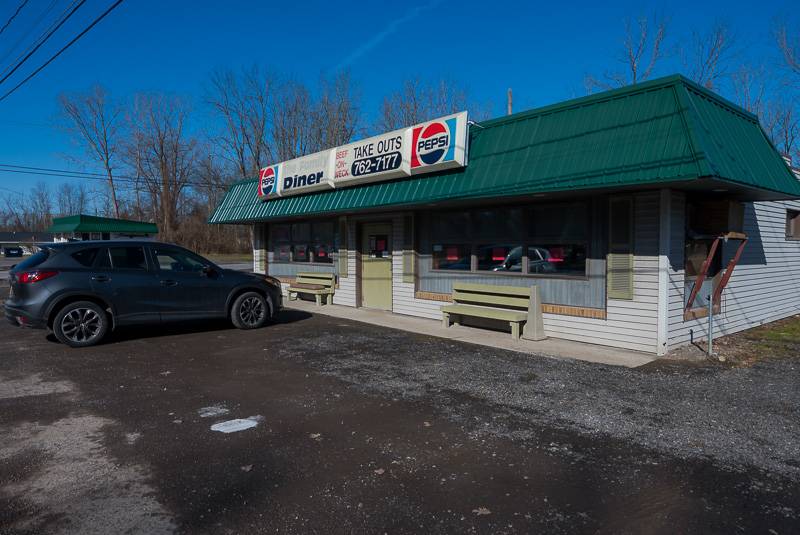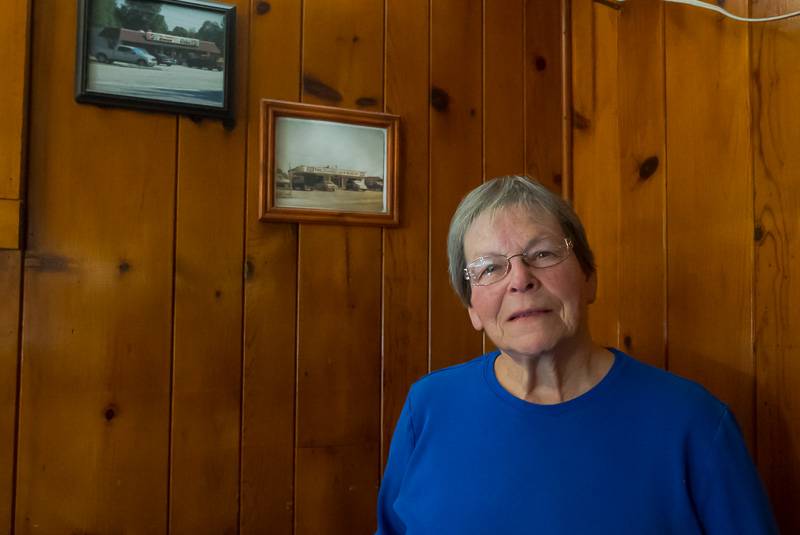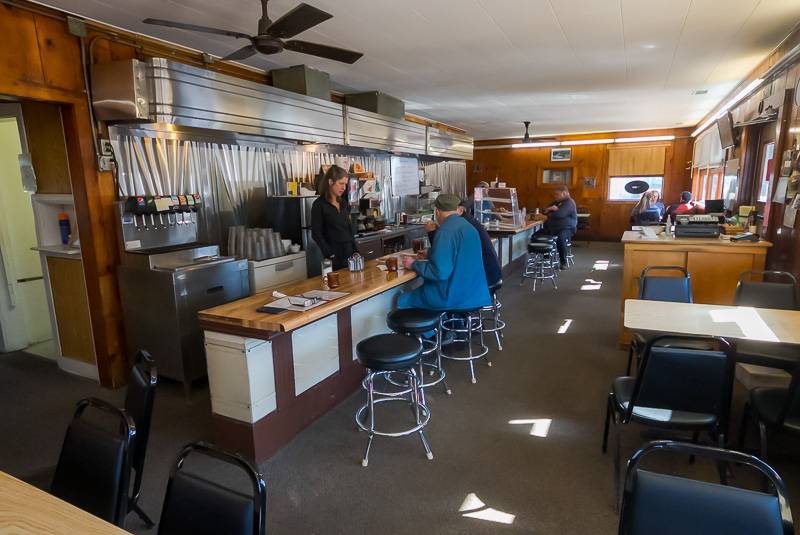
Photo by Howard Owens.
A lot can change over four decades.
Eleanor Swimline remembers that when she and her husband, Harold "Red" Swimline, first started running The Family Diner on Pearl Street Road in West Batavia in 1980, eggs and toast cost 50 cents, coffee was a dime, and a hamburger or slice of pie was a quarter.
"Everything changes over the years," said Eleanor. "I've had a lot of things change over the years. It's hard to describe all of the changes."
A big change came 17 years ago when her son Brian and his wife LeeAnn took over the business and leased the building from Eleanor. And things changed again when COVID-19 struck, and those changes have a lot to do with the decision by Brian and LeeAnn to close the diner. The diner's last day of business is Sunday.
"It's just sad," Brian told The Batavian on Friday morning. "I wish I didn't have to do it. It was a tough decision to come to, but it's realistic."
Before COVID, The Family Diner was open for breakfast, lunch, and dinner, even on Mondays. Since the pandemic, it's been closed on Mondays and open only for breakfast and lunch, and the breakfast and lunch crowd is dwindling.
Brian said food costs are going up, the cost of help is going up, and people aren't seeking out sit-down meals like they used to.
"The main thing (as a result of COVID) in my opinion, is, people realized during those four months how much money you save when they're not eating out all the time," Brian said. "That is a big thing right there."
Eleanor also blames the rise of fast-food chains -- that competition for people's dining dollars started before the pandemic, but the pandemic seems to have only made matters worse.
"When I started, there weren't all the fast-food places like there are now," Eleanor said. "Families all came here. I mean, I had people who were here three times a day. When they came along with fast-food places, that changed a lot."
A story that appeared on Friday in Bloomberg News supports her theory.
"Fast food -- the most prevalent dining option across the US -- has seen profit margins improve compared with those at sit-down, non-chain eateries, despite its price increases outpacing those of table service," Bloomberg reported.
Brian said he hasn't yet started losing money on the restaurant. Still, the profit margin has become so slender it isn't worth the extra hours of work -- he also owns a dump truck business with his brother -- and the difficulties that go with running a food business.
Eleanor talked about the difficulty in finding help. She remembers when teenagers used to line up for dishwasher jobs. Now, they don't come around looking for that kind of work.
"After a while, you get burned out," said Eleanor, who still helps at the restaurant. "The finances. It's hard to get help. Everything is different since COVID. It really just destroyed things, and prices have gone up."
To stay in business, Brian said, he would need to charge $20 for a breakfast that now costs $10. He doesn't see that kind of price for a breakfast meal as an option.
"Ever since the pandemic, we've seen a lot of it is people saving money," Brian said. "A lot of it is fast food, also, employees, inflation, with what you've got to pay people now, it's tough. It's just all bottling up. I'm frustrated. I don't want to do it (close), but for all the work you do, it's just not really worth it, you know?"
And Brian doesn't blame people for wanting to save a buck here and there.
"Personally, if I was looking at the same situation, I'd go, 'Look, I saved all this money. I do it. Wouldn't you?" Brian said. "The times change. You see less and less of these places. That's what's sad. Now it's Applebees or it's this or that but you like to go to places where you know everybody, and basically strangers come in and by the time they leave they're your friends."
Brian started working in his parents' business when he was 10. He washed dishes, and he remembers making doughnuts before catching the bus for school. He's always loved the business, he said, especially the customers.
"I just like people," Brian said. "I like seeing how happy they are when they're here. The joking around, you know, the closeness, I like seeing other people talking with each other. This is just natural to me."
He said that he doesn't think the full weight of closing the business has really hit him yet.
"It's really gonna affect me next week," he said. "When it comes Tuesday, then it's gonna really mess with me. I know it, you know. You just gotta accept it for what it is, you know? I don't know. Regroup? See what happens, I guess."


Photo by Howard Owens.

